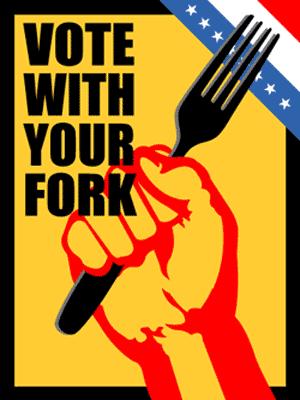Michael Pollan Chronicles Food Movements For NY Review Of Books
Written by Vegetarian Star on Monday, May 24th, 2010 in Authors, Food & Drink.

Author of The Omnivore’s Dilemma Michael Pollan has written an article for the June 2010 edition of the New York Review of Books chronicling various food movements in history.
“Among the many threads of advocacy that can be lumped together under that rubric we can include school lunch reform; the campaign for animal rights and welfare; the campaign against genetically modified crops; the rise of organic and locally produced food; efforts to combat obesity and type 2 diabetes; “food sovereignty” (the principle that nations should be allowed to decide their agricultural policies rather than submit to free trade regimes); farm bill reform; food safety regulation; farmland preservation; student organizing around food issues on campus; efforts to promote urban agriculture and ensure that communities have access to healthy food; initiatives to create gardens and cooking classes in schools; farm worker rights; nutrition labeling; feedlot pollution; and the various efforts to regulate food ingredients and marketing, especially to kids.”
Possibly Related Posts:
- Chrissy Teigen Failed Vegan Experiment
- Mia Evans Is A “Masterchef Junior” Vegetarian Star
- Holly Madison Enjoys Vegan Smoothie From M Cafe In Beverly Hills
- Controversy Over Pro-Vegeterian Curriculum In Schools
- Ellie Goulding Creates Protein Bar “Everlasting Joy” With GoMacro




